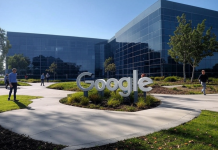When you search on Google for something you want to know more about, your search results reflect those sites that everyone on the internet has collectively decided are the most useful sites regarding that subject – right? … Wrong.
Your search results are instead personalized for you, showing you what you are most likely to click on. Another person searching on the same term may very well get completely different search results.
At first glance, that might seem helpful, but truly what’s happening is that you are being isolated from information that may not fit your current beliefs and interests.
These filters, based on your past habits, are making your world smaller and in the process promoting the polarization of society.
What The Internet Knows About You
We all know by now that Google collects a lot of information about us based on our conduct on the internet. So does Facebook, Amazon and, in fact, the top 50 sites on the internet.
The extent to which this is happening, however, isn’t really well known.
For example, did you know that Google collects 57 different personal profiles of you every time you use it?
What computer are you using? Where are you sitting? How long does it take you to pick a link? What link do you pick first? How long do you stay there? And on and on.
From this profile, Google, Facebook, and others can start making determinations as to your likes and dislikes. That can sometimes be good. If you’re an outdoorsman looking for shoes, you won’t be shown a lot of links for female pumps.
This kind of prediction can make shopping on the internet faster and more convenient for you, but what are you giving up in return?
The Filter Bubble
As Eli Pariser points out in his book, The Filter Bubble: What the Internet is Hiding From You, the trend for personalized internet experiences has gone well beyond making shopping easier. The issue now has become not what the world knows about you, but instead, what you know about the world. Not just what you buy, but what facts you receive.
This is happening because sites like Google, Yahoo News, The New York Times, MSN, CNN, Fox News, and Facebook have taken it upon themselves to decide for you what news items you are probably most interested in.
Are you a conservative who relishes reading about liberal scandals and mounting debts?
Is your friend a liberal who loves finding out about Republican embarrassments and global climate change?
Your search results will be tailored to your likes, and each of you may well get different results in your search on the same subject.
Confirmation Bias
The result? Conservative leanings will be reinforced by what’s being read, while at the same time, liberal leanings are also being reinforced by what’s being read.
This is called confirmation bias, the natural tendency we all have to place greater value on information that agrees with our pre-existing beliefs, while discounting information that goes against those beliefs.
Your internet search results or the news you get from online sites like MSN, Google, or Yahoo News, will have invisibly been tailored to fit your profile.
Information that questions your assumptions will be harder to find. Politically, you and your friend’s beliefs will be further polarized as you each receive a different set of facts, over and over again.
Facebook asks if you like what you have just read or seen, and uses that information to make predictions about what else you want to see. How many people do you think like a story about homelessness or foreign wars? … Not many.
Consequently, we can become isolated from these unpleasant, but important, topics.
Making Decisions For You
According to author Eli Paliser, Facebook even goes one step further.
He, a liberal, decided that since all of his friends were fellow liberals, he wanted to befriend some conservatives, so he could read more about their point of view. They all agreed to be his friend.
Within a few months, he noticed that these friends had disappeared from his friends list.
When he asked those friends, it turns out, they had not un-friended him. Rather, Facebook’s systems had decided that these people weren’t really his friends, so they were automatically deleted.
George Orwell, author of the dystopian novel 1984, would have understood why Big Brother would do this.
The personalized internet has some key results:
1) it targets advertising to your tastes, not necessarily a bad thing;
2) it targets the content of what you read about, a dangerous tendency;
3) it makes decisions for you, such as the Facebook issue;
Your Own Universe
What can you do about it? Frankly, very little.
If you don’t like sites like Google tracking what you click on, you’ll need to get a new computer and start afresh.
Even then though, Google will instantly know what kind of computer you bought, and the data collection will start all over again.
Privacy laws are outdated, and there is little push in Congress to limit what commercial sites can do with the personal information you provide to them every time you use the internet.
The late Daniel Patrick Moynihan once said: “Everyone is entitled to his own opinion, but not his own facts.”
Increasingly, we are living in a world of our own facts, shaped for us according to our likes and dislikes.
Who thinks that’s a good idea?
What are your thoughts on the subject?
Sound off in the comment section below and tell us what you think.






